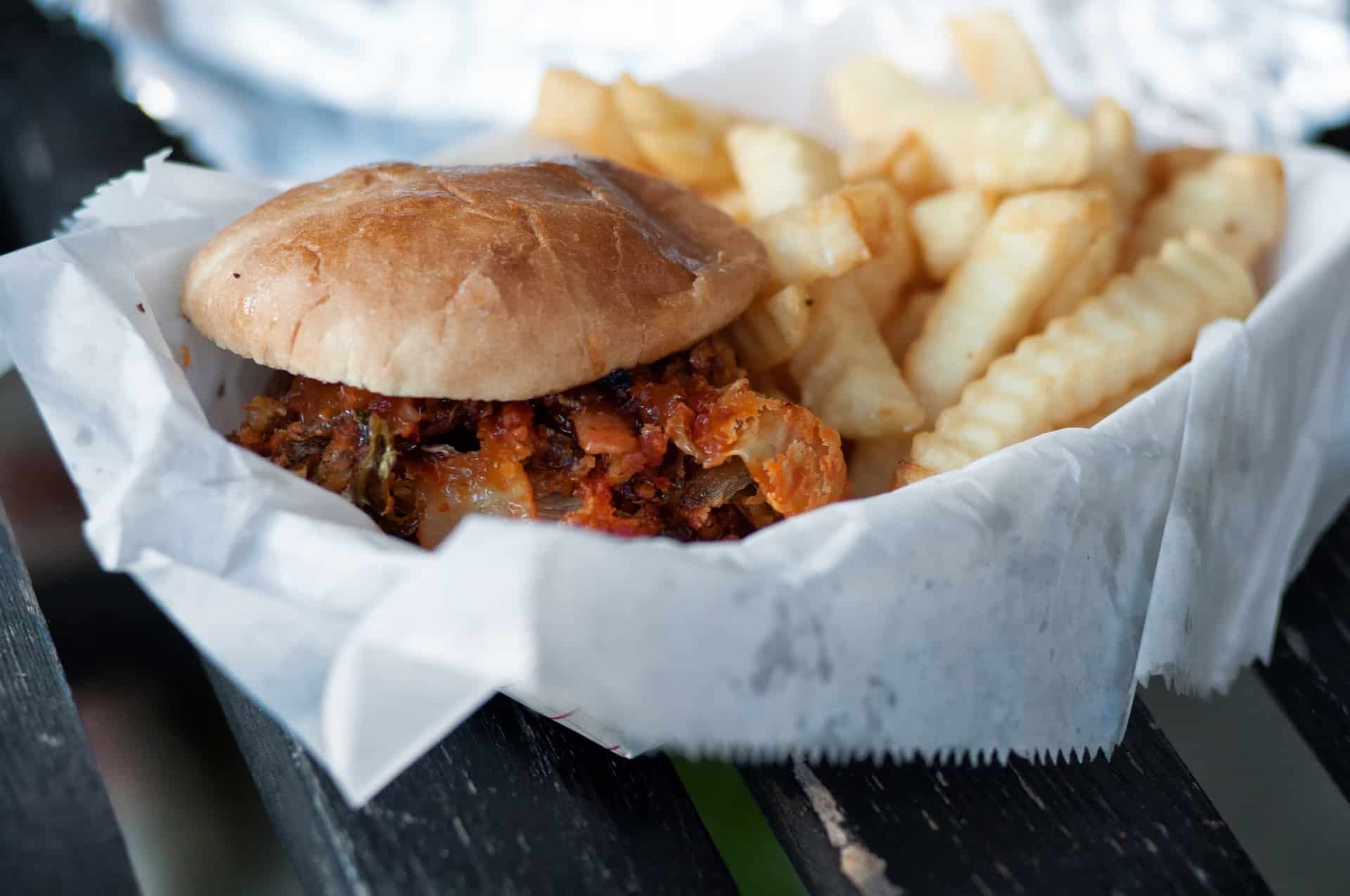8 Weight Loss Don’ts To Watch Out For
1. Not Having A Big Enough Motivator
Like most goals in life, it’s important to have a “why” that’s bigger than your “why not” if you want to be successful at losing weight. This will help to ensure that your excuses don’t stop you from getting in that early morning gym session or evening run.
Money has been proven to be a simple yet powerful and effective motivator. Think about it – it’s what makes you keep on showing up to work each day even if you’d rather just stay in bed!
HealthyWage is an awesome company that has partnered with the likes of Kobe Bryant to encourage people to lose weight by providing a financial reward when they achieve their weight loss goals. You can complete a personal weight loss challenge or get a group together and compete as a team.
Learn more here: How to Get Paid to Lose Weight With HealthyWage.
2. Skipping breakfast
I’m sure you’ve heard it before:
Breakfast is the most important meal of the day.
Eating a healthy, nutritious breakfast will help to restore our glucose levels, provide energy for the day, and reduce the risk of type-2 diabetes and heart disease.
In addition to this, a study published in the American Journal of Epidemiology reported that people who skip breakfast are more likely to be obese.
However, eating breakfast won’t provide any of these health benefits if it’s full of junky carbs and trans-fats, and loaded with sugar. (Doughnuts, unfortunately, fall under this category.)
Related Posts:
- 10 Healthy Make-Ahead Breakfast Ideas
- 20 Healthy No-Bake Energy Ball Recipes
- 17 Healthy Weight Loss Smoothie Recipes
3. Weekend bingeing

While it’s usually ok to have the occasional treat, all of your weekday progress can be completely thrown out of the window if you binge over the weekend.
A study in the Journal of the Academy of Nutrition and Dietetics found that the typical non-chain restaurant meal contained 1205 calories.
American, Italian and Chinese cuisine fared even worse, with the average meal containing 1495 calories.
The amount of calories you need to consume varies based on age, gender, activity level and weight-related goals. However, it’s generally recommended that the average female consume about 2000 calories to maintain weight and 1500 calories if weight-loss is the goal.
A 1495 calorie meal leaves just 5 calories for the entire day, which is neither healthy, nor realistic.
4. Drinking your calories
In a study by the American Journal of Clinical Nutrition, it was reported that the energy (i.e.) calorie intake from beverages “represents 21% of of total daily energy intake in the general American population.”
What exactly does this mean?
This means that 21% of the calories that you’re consuming every day are coming not from the food you’re eating, but the drinks you’re consuming.
And a large amount of this is from artificially sweetened beverages like soda, fruit juices, energy drinks, and alcohol.
These types of drinks contain no nutrients and provide next-to-no satiety, meaning that you are left feeling hungry, despite consuming a large amount of calories.
So, what should your beverage of choice be?
Related Post:
5. Not getting enough sleep

Experts recommend for optimal cognitive function, adults should get between 7-9 hours of sleep every night.
But a 2013 Gallup poll found that 40% of Americans get less than 7 hours sleep, with the average amount of shut-eye being just 6.8 hours.
In addition to impaired cognitive function, a lack of sleep can also contribute to weight gain.
A study in the American Journal of Clinical Nutrition found that when participants were sleep-deprived, they consumed more calories (but expended the same amount) than when they received 9 hours of sleep.
A lack of sleep can also slow digestive function and increase cortisol levels, which can lead to overeating.
Here are some tips for getting a good nights sleep:
- Set a reasonable time to go to bed, and stick to it
- Unplug – don’t lay in bed on your iPhone or laptop
- Set the room temperature to 60-67 degrees, which is considered optimal for sleeping
- Make sure you have a good, supportive mattress and pillow
If you’re unsure of the quality of your sleep, then I recommend investing in a sleep tracker like this one, which monitors how long and how well you sleep.
6. Going “fat-free”
Fat has long been considered the devil when it comes to weight loss. Walk down any aisle in the grocery store and you’ll see “fat-free” advertised on everything from milk to mayonnaise.
But not all fats are created equal. While you definitely want to be avoiding hydrogenated fats, other fats like monounsaturated and polyunsaturated fat are both beneficial to overall health and can contribute to weight loss. Healthy saturated fats such as what’s found in coconut oil is also beneficial for weight loss.
Monounsaturated fats help to lower cholesterol and reduce the risk of coronary heart disease while the polyunsaturated fats found in avocado’s contains essential omega-3 fatty acids, and may lower your risk of heart disease and Type-2 diabetes.
And because fat is highly satiating, it keeps you feeling full for longer, making you less likely to snack on empty calories.
7. Too much cardio, not enough weight-training

Regular cardio is important for weight-loss and essential for building a healthy heart, lungs, and cardiovascular system. Cardio also helps to boost your metabolism, which aids in weight loss.
But there can be too much of a good thing. Spending hours and hours sweating it out on the treadmill does not a lean, fat-burning body make.
In fact, overdoing it on the cardio can actually have the opposite effect. Too much cardio can cause your body to start using your lean muscle mass as a source of fuel (NOT a good thing!)
Less lean muscle mass = lower metabolism and less fat burning.
It’s incredibly important to not only maintain the lean muscle mass that you have, but to also increase your lean muscle mass.
This can be done by making sure you don’t overdo it on the cardio and by incorporating weight-training in to your exercise regime.
Regular weight training will help to build lean muscle mass which means that your calorie burning will increase, even when you’re not exercising.
A personal trainer can help you with setting up a weight training routine, but if that’s not in your budget, check out Aaptiv. I love Aaptiv because it’s like having your own personal trainer with you 24/7, at a fraction of the cost. There are so many excellent workouts, so whether you’re into weights, yoga, running, cycling, elliptical etc., then Aaptiv will likely have an awesome routine!
Related Post:
8. Avoiding carbs
There’s a common belief that carbs are the devil when it comes to weight loss. This is simply untrue.
Carbohydrates are not the devil – simple, “junky” carbohydrates are the devil.
Our bodies need carbohydrates to function properly – they’re the bodies main source of fuel. The key is to make sure you don’t overeat carbohydrates and that the carbs you do eat are the right kind, not the junky kind.
There are two types of carbohydrates:
- Simple carbohydrates are sugars, and they’re the type you want to avoid.
Simple carbs are low in fiber and rapidly absorbed into the bloodstream which can causes major spikes in blood sugar levels.
Some examples of simple carbohydrates that you should avoid are candy, refined white bread, pasta, and white rice, soda and sugar.
- Complex carbohydrates are “good carbs” – they type you want to eat more of.
Unlike simple or “junky” carbs, complex carbohydrates contain fiber and they take longer for the body to break down. Complex carbs provide more sustained energy for the body and don’t cause rapid spikes in blood sugar.













No comments:
Post a Comment